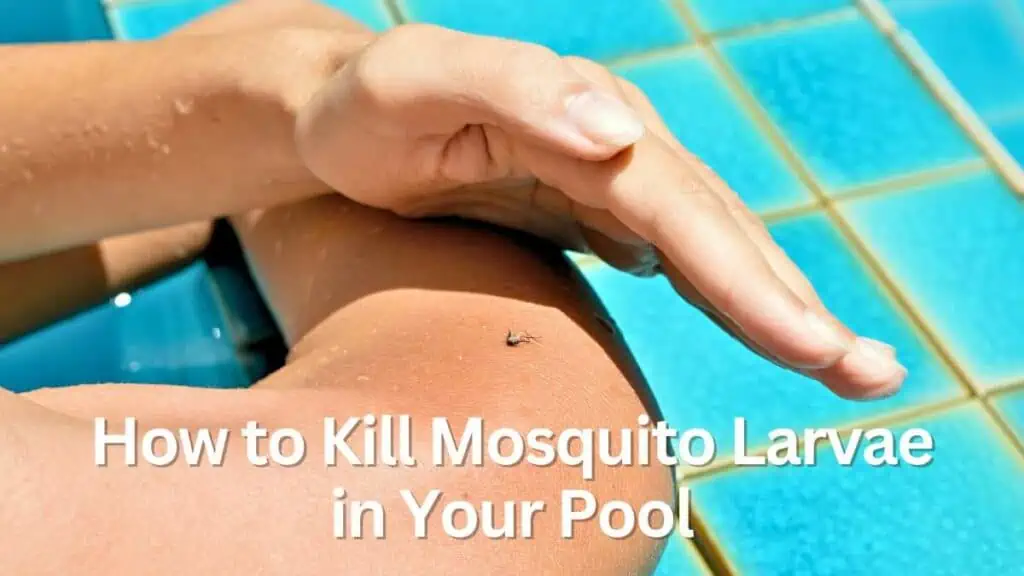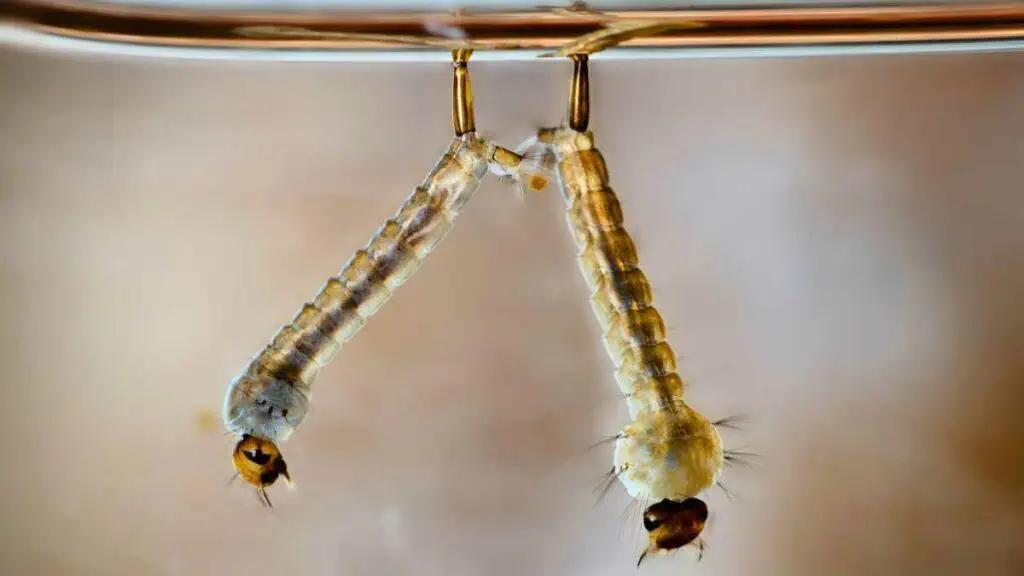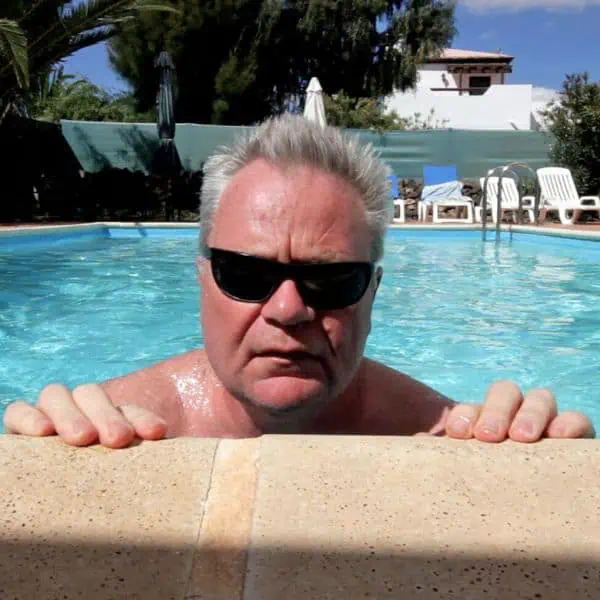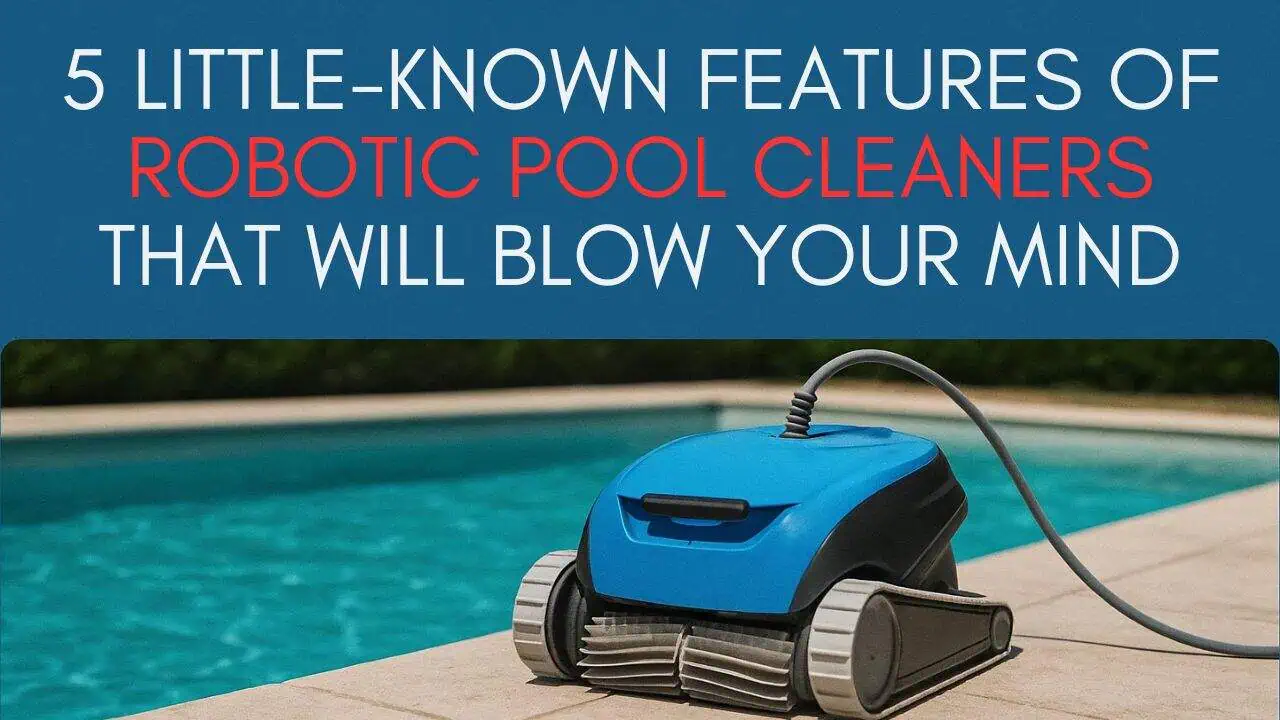Summer is synonymous with sun-soaked days, barbecues, and refreshing dips in the pool. But as temperatures rise, so does the potential for unwanted guests: mosquitoes.
These pesky insects leave itchy bites and can lay their eggs in stagnant water, turning your pristine pool into a breeding ground. Before you know it, the surface of your pool could be teeming with mosquito larvae, threatening to transform your oasis into a mosquito haven.
No one hates mosquitoes more than I do. I don’t react to bites, but they wake me up at night when they fly past my ear, making that horrible high-pitched buzz. So, if my pool were helping to breed them, I would want to stop it.
But fear not! We will guide you through effective methods to eliminate mosquito larvae from your pool, ensuring your swimming sessions remain enjoyable and mosquito-free. Discover how to maintain a clean, safe, and larvae-free pool this summer.
Key Takeaways
- Understanding the life cycle of mosquitoes is important in preventing them from breeding in your pool.
- Identifying and eliminating potential breeding grounds can help prevent mosquito infestations.
- Regularly cleaning and maintaining your pool and backyard can help prevent mosquitoes from breeding.

Understanding Mosquitoes and Their Life Cycle
To effectively control mosquito larvae in your pool, it is important to understand their life cycle. All types of mosquitoes have a similar life cycle, consisting of four stages: egg, larva, pupa, and adult.
Mosquitoes lay their eggs in standing water in pools, ponds, or small containers like buckets or flower pots. The eggs hatch into larvae, which are also known as wigglers. The larvae live in the water and feed on microorganisms and organic matter.
After a few days, the larvae develop into pupae, also known as tumblers. During this stage, they do not feed and are relatively inactive. Finally, the adult mosquito emerges from the pupal case, ready to mate and lay eggs.
It is important to note that only female mosquitoes bite and feed on blood, which they need to produce eggs. Male mosquitoes feed only on nectar and plant juices.
Identifying Mosquito Breeding Grounds
To effectively eliminate mosquito larvae from your pool, it’s important to identify where else they may be breeding in the immediate area. Mosquitoes lay their eggs in stagnant or standing water, so any water bodies or puddles around your pool area can become potential breeding grounds.
Here are some common places to check for mosquito breeding:
- Pool covers: If you have a pool cover, ensure it’s not holding any water. Mosquitoes can lay their eggs in the water that collects on top of the cover.
- Gutters: Clogged gutters can hold water and create a breeding ground for mosquitoes.
- Flower pots and planters: Water can collect in the saucers under flower pots and planters, providing a perfect environment for mosquito larvae.
- Bird baths: Make sure to change the water in bird baths at least once a week to prevent mosquitoes from breeding.
- Kiddie pools: Empty and turn over kiddie pools when not in use to prevent water from stagnating and becoming a breeding ground.
Remember, even small amounts of standing water can attract mosquitoes and provide a breeding ground for their larvae. By identifying and eliminating these areas of stagnant water, you can significantly reduce the mosquito population around your pool.
What Do Mosquito Larvae Look Like?

Before looking into how to kill mosquito larvae in your pool, it’s important to know what they look like. Mosquito larvae are the immature form of mosquitoes, and they are commonly found in standing water, including swimming pools.
Here are some key characteristics of mosquito larvae:
- Size: Mosquito larvae are small, usually measuring around 1/4 inch long.
- Shape: They have long, slender bodies with distinct heads and tails.
- Color: Mosquito larvae are usually light gray or brown.
- Movement: They move in a wriggling motion, so they are sometimes called “wrigglers.”
It’s important to note that mosquito larvae require water to survive. They are not capable of flying or biting like adult mosquitoes.
If you suspect that your pool has mosquito larvae, it’s important to take action to eliminate them as soon as possible. Mosquito larvae can quickly multiply and become a full-blown infestation if left unchecked.
How to Kill Mosquito Larvae in Pool
If you want to get rid of mosquito larvae in pool water, there are several effective ways. Here are some steps you can take to eliminate mosquito larvae from your pool:
- Shock Your Pool: If you have a severe mosquito larvae infestation in your pool, you should shock your pool, which is something you should do regularly anyway. You may have mosquito larvae in your pool because you haven’t shocked the pool, or at least not enough. Superchlorinating will kill any larvae present. Read: How to shock a pool.
- Use Mosquito Dunks: Mosquito dunks are a type of larvicide that can be placed in your pool to kill mosquito larvae. They contain a bacteria called Bacillus thuringiensis israelensis (BTI), which is toxic to mosquito larvae but harmless to humans and pets. Simply drop the dunks into your pool, and they will release the BTI bacteria, killing any mosquito larvae present.
- Use Methoprene: Methoprene is another type of larvicide that can kill mosquito larvae in your pool. It works by preventing the larvae from developing into adult mosquitoes. Methoprene comes in granules that can be sprinkled into your pool. Follow the package instructions carefully to ensure you use the correct amount.
- Use Oil: Another way to kill mosquito larvae in your pool is to use oil. Simply add a few drops of vegetable oil to the surface of your pool. The oil will form a thin layer on top of the water, suffocating any mosquito larvae present.
- Eliminate Mosquito Breeding Sites: One of the most effective ways to prevent mosquito larvae from appearing in your pool is to eliminate their breeding sites. This means removing standing water around your home, such as in flower pots, bird baths, and gutters. Doing so can significantly reduce the number of mosquitoes in your area and prevent them from laying eggs in your pool.
By taking these steps, you can effectively kill mosquito larvae in your pool and prevent them from returning.

Preventing Mosquito Breeding in Your Pool
Mosquitoes can breed in standing water, and your pool can be a prime breeding ground if improperly maintained. Here are some tips to help prevent mosquito breeding in your pool:
Keep your pool clean and well-maintained. Regularly clean your pool and remove any debris, such as leaves or twigs, that may accumulate on the surface or at the bottom of the pool. This will help prevent mosquitoes from laying eggs in the water.
Maintain proper chlorine levels. Chlorine is an effective way to kill mosquito larvae in your pool. Make sure to chlorinate your pool and maintain the appropriate chlorine level regularly. The ideal chlorine level for a pool is between 1 and 3 parts per million (ppm).
Use a pool cover. A pool cover can keep debris out of your pool and prevent mosquitoes from laying eggs in the water. Use a cover that fits snugly over your pool and has no gaps where mosquitoes can enter.
Keep your pool pump running. A pool pump can help circulate the water in your pool, making it less hospitable for mosquitoes to breed. Run your pool pump for at least 8 hours daily to ensure good water circulation.
Use an automatic or robotic pool cleaner. An automatic or robot pool cleaner can help keep your pool clean and prevent debris from accumulating on the surface or at the bottom of the pool. This can help prevent mosquitoes from laying eggs in the water.
Maintaining Your Backyard to Prevent Mosquitoes
Mosquitoes breed in standing water, so removing stagnant water sources in your backyard is important. Here are some tips to help you maintain your backyard and prevent mosquitoes from breeding:
- Keep your lawn and garden well-maintained. Mow your lawn regularly and trim any overgrown vegetation. Mosquitoes like to hide in tall grass and weeds, so keeping your yard tidy can help reduce their numbers.
- Remove any leaves and debris from your yard. Mosquitoes like to lay their eggs in damp, decaying organic matter, so keeping your yard clean is important.
- Check your pool for algae and other debris. Mosquitoes can breed in pools that are not properly maintained, so make sure to clean your pool regularly and keep the water circulating.
- Use soap to clean your pool skimmer and skimmer net. Mosquitoes can lay their eggs in these areas, so keeping them clean is important.
- Check your drains for standing water. Mosquitoes can breed in drains that are not properly maintained, so make sure to keep them clean and free of debris.
Using Mosquito-Repellent Plants and Oils
You can use mosquito-repellent plants and oils in your yard to keep mosquitoes away from your pool. These plants and oils can help repel mosquitoes and keep them from laying eggs in your pool.
One popular plant for repelling mosquitoes is citronella. Citronella plants have a strong scent that mosquitoes do not like. You can plant citronella around your pool or use citronella oil in candles or diffusers to keep mosquitoes away.
Another plant that can help repel mosquitoes is rosemary. Rosemary plants have a strong scent that mosquitoes do not like. You can plant rosemary around your pool or use rosemary oil in candles or diffusers to keep mosquitoes away.
Lavender is another plant that can help repel mosquitoes. Lavender plants have a strong scent that mosquitoes do not like. You can plant lavender around your pool or use lavender oil in candles or diffusers to keep mosquitoes away.
In addition to plants, you can also use essential oils to repel mosquitoes. Citronella, lavender, and rosemary oils are all effective at repelling mosquitoes. You can use these oils in candles, diffusers, or as a spray around your pool.
When using essential oils, it’s important to dilute them properly. To create a spray, you can mix a few drops of essential oil with a carrier oil, such as coconut or olive oil. Be sure to test the spray on a small area first to ensure it doesn’t cause any irritation.
Using mosquito-repellent plants and oils is a natural way to keep mosquitoes away from your pool. Not only are these methods effective, but they also smell great and can add to the ambiance of your outdoor space.
Summary
To effectively eliminate mosquito larvae in a pool, specific measures need to be taken. The most common method is to regularly maintain chlorine levels within the recommended range, as it discourages the growth and survival of these larvae.
Additionally, mosquito dunks, which are small, donut-shaped discs containing a natural larvicide called Bacillus thuringiensis israelensis (BTI), can be placed in the water. BTI specifically targets the mosquito larvae, preventing their development into adult mosquitoes.
Moreover, removing standing water sources around the pool area, such as flower pots or buckets, is crucial as these can serve as breeding grounds for mosquitoes.
By following these preventive steps, pool owners can effectively control and eliminate mosquito larvae, thus reducing the risk of mosquito-borne diseases.





Leave a Reply